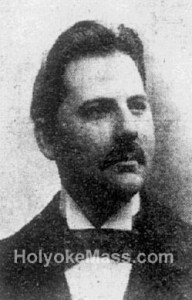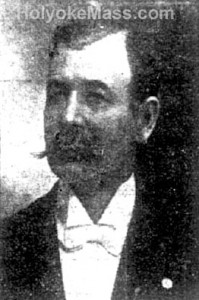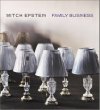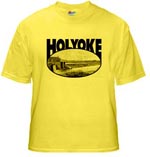by Laurel | December 11th, 2013
11 December 1904
[Note: this piece was published in 1904 and should be considered representative of the time. Initially a bit verbose, as the article continues there is some interesting information on the French Canadians in Holyoke and Springfield. Because of the length, the article has been split into six parts, this is Part II of VI.]
Race, Integrity and Language Preserved to a Remarkable Degree–Causes of the Immigration Movement — Customs and Literature.
The movement of French-Canadian immigration into this country dates properly from about the middle of the last century. The census records show that it amounted to little, if anything, before 1850. From 1850 to 1860 it was still small. From 1860 to 1870 it had reached considerable proportions, while in the two decades from 1870 to 1880 and from 1880 to 1890 probably three-quarters of the French-Canadian immigrants now in the country first crossed the border. Since 1890 the movement may be said to have stopped altogether, so few have been the immigrants. the causes of the movement are clear. The French-Canadian families, in the first place, are notoriously large, the children numbering very commonly 10 to 15 in one family in Canada. This in time brought about what was, under the given conditions, and overpopulation. And, further, in 1867 and the following years, the French-Canadians suffered an economic crisis which is supposed in part to have been due to the tariff competition entered into at the time between the United States and Canada. At all events, there suddenly became little market for their farm produce and evil times stared them in the face. High wages and altogether better opportunities were open to them in the States, particularly in the growing mills of New England, into which much of the larger number of the French Canadians have gone as operatives.
Very few of these French Canadians have returned to Canada to live, and of these few a goodly proportion have again returned to this country, being dissatisfied with conditions in their old homes after their experience of greater prosperity in the States. The fact, however, that the movement of immigration has stopped is explained by the much better times upon which the French-Canadians in Canada have now fallen, with increased facilities for transportation and growing markets. they are able to dispose of the produce of their picturesque and fertile farms along the St. Lawrence to better advantage than ever before. In particular, they have prospered in the creation of a market in England for their cheese , and this industry alone has given a livelihood to a large number of the present population of French Canada. They are well content with the Laurier administration and are now chiefly to be numbered in the liberal party. All this has been the result of a far wiser policy than England employed to her cost in South Africa, and the French-Canadian of Canada willingly salutes and pays allegiance to the English flag while yet paying on his knees, according to the verse of Louis Frechette, member of the Canadian Parliament and poet laureate of French Canada., a sentimental devotion to the traditional flag of France.. Nor by the same token, is the desire by the French Canadian for annexation to the United States.
The importance of the fact that the original French-Canadian settler came chiefly from the maritime provinces of France, from Normandy, has already been alluded to. In a series of interesting articles published a year or two since by Prof. Gustave Michaud of the French-American college of this city, it was further reminded that these Normands themselves owed many of their characteristics to the admixture of adventurous blood when in the 10th century the pagan Northmen descended upon Normandy, conquered it, and stayed to mingle with its people. Thus by the best right of ancestry the French-Canadian is bolder, more adventurous, more enterprising and readier to strike out in new fields to better his condition than is his cousin over seas, whose wish it is to live and die in Paris. but in other characteristics the difference is one of degree rather than of kind. the French -Canadian is light-hearted and gay, more so than the people around him, but less so than the Parisian. In the French phrase, his gayett is less “expansive.” And though the French-Canadian is of a ruder physical stock, he generally, whatever his position, exhibits much of that gentle courtesy which se4ems to have been innate in the French. But his manual dexterity is perhaps his most surprising trait, when it is borne in mind that for two centuries the French-Canadian people have been devoted chiefly to agriculture, calling for strength rather than for cleverness with the hands. Yet the French-Canadians have made the best of skilled labor in the mills and factories, and have almost monopolized the carpenter’s trade in many places. Theirs also is a native eye for beauty, and in the development of artistic industries which, it is to be trusted, awaits us, the French-Canadians may therefore be counted on to play a large role. Akin to this is the matter of the neat and tasteful dressing which the thrifty French-Canadian women accomplish on ever so little, showing again that French talent for style which has been the despair of other races. Their homes, too, are neatly kept and infinitely more comfortable than the resting places of Parisian families above them in wealth or in the social scale. In politics it is probably that much may yet be heard in New England of the French Canadians. Growing more rapidly than the other races through a relatively higher birth rate, more closely united also than the other races, their opportunities for political prominence are patent. A fondness for political endeavor seems to be theirs, but they lack the natural political ability of the Irish, and a somewhat volatile temperament, “Shiftiness” their detractors would call it, militates against them. The interesting question of their party affiliations is difficult to answer. General observers maintain that for the most part the French-Canadians are republicans, for the food reason that the Irish are democrats. In Springfield the majority are indeed republicans. But not in all places does this hold true. In Holyoke the division between the parties is at least more even. But it is worth noting that experience has been hereabout that when a question came up, say in a city council or the like, which actually affected an individual French-Canadian, party lines were totally cut and the French-Canadian members rallied, irrespective of party, to the support of their compatriot.
The language of the French-Canadian is a fascination and endless subject. It is also frequently the derision of vastly clever Americans who have been to Paris on a Cook’s tour, say “pare-r,” and talk of being “soule” (drunk) when they would like to say “seule” (alone). But the language of the French-Canadian, like the man who speaks it, is what it is from good natural causes, and, moreover, it is better French than s commonly supposed. The chief causes for its difference from the French of Paris are two: It was from Normandy and not from Paris that the French settler came; in the years that have passed since French Canada was cut off from France the language of the mother country has changed far more than the lost colony has strayed from the old standard. For the first of these reasons many of the peculiarities of Canadian-French which one will not hear in Paris, one will hear today in Normandy. For the second reason, other such peculiarities will be found in the old French writings of the 17th century, with their comparatively long and involved sentences, opposed to the sharp-cut phrases of the present, and their obsolete words. It is not literally true, as claimed by some, that any French-Canadian could make himself easily understood in Paris. the testimony of amazed Parisians who have tried to understand is conclusive. But it is true that provincials from various quarters of France itself have an even more difficult job in Paris, and that the educated French-Canadian has little or no difficulty. With the spread of education in Canada and the French parochial schools here, in which the children generally stay until 12 years old, the use of the language is naturally improving.
From The Springfield Republican










